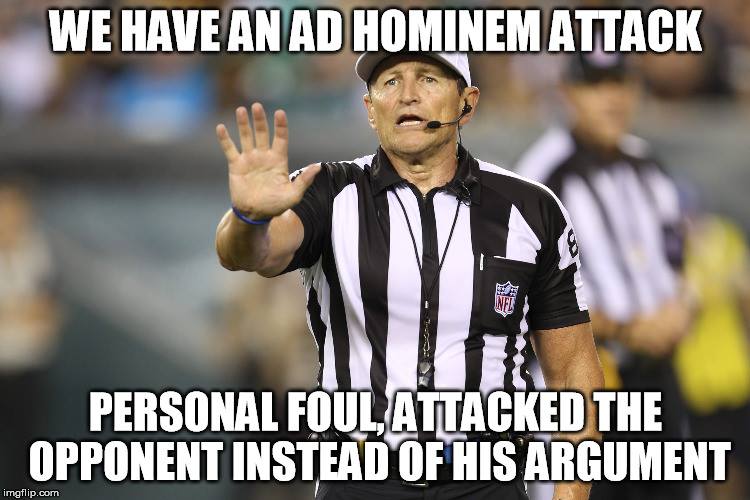
Personal Foul: Ad Hominem Attack(s) On Higher Ed
Deanna
- 0
- 647
Dear Gov. Bevin,
My original plan for this morning included spending a few carefully hoarded hours to write something fun and maybe frivolous to satisfy myself as a writer and give myself a little break from my hectic schedule, because I have been working seven days a week (yes – including the long holiday weekend) since the school year began. However, I have been thinking about your comments about higher education and every time I pick up my pen the need to respond to your statements became so overwhelming that my personal writing just had to wait.
I have spent three decades working in two professions that you regularly scorn – journalism and education – and I am sure that you do not consider jobs in either field as “high wage, high demand.” Yet I would argue that both professions are essential to the function of our society, but I am not going to focus on that argument here, because others have done so much more eloquently than I (for example see In Defense of Sound Journalism and In Defense of Educators). Instead I thought it might be more effective as a rhetorician to address the logical fallacies in your argument using one of my favorite meme’s (logical fallacy referee).
I submit that you are guilty of the ad hominem fallacy because your response to protests surrounding Kentucky’s pension crisis and higher education cuts is to accuse higher education institutions of being so out-of-touch with reality that they do not understand their mission, educators in general for failing to push all our students to “study the right things,” and students for listening to our suggestion that they follow their passion and interests. Attacking literature and dance might make a good sound bite, but your argument is faulty because eliminating these (few and small) programs would not solve either the pension crisis or the real problems caused by Kentucky’s underfunding higher education.
I don’t know any educators (either in higher education or K-12) who do not understand our mission is to prepare our students for their future – for their benefit as well as the benefit of society). In fact, I challenge my general education students to study the purpose of education as the opening assignment for my classes and in my professional writing classes I require my students to study their intended profession and mentors to learn more about the possibilities and challenges of this field. Every class I teach is focused on preparing my students to succeed in college and beyond – and I am not unique.
I suspect, and I apologize if I am wrong, that you would not approve of my educational career spent teaching writing and teaching other educators how to teach writing. After all, English is not a job that matters…except it is. I regularly study the list of skills that employers want and communication (with an emphasis on writing) and critical thinking consistently appear on those lists. I know my institution and my colleagues regularly study the programs we offer as well as the required core curriculum specifically to ensure that our degrees prepare our students for work and life beyond college—and we are not unique.
However, I am most bothered by the hapless students you target with your words. My students take choosing a career path very seriously. They want to be contributing members of society. They want to make a decent living. But they also want more than a job. Part of their reason for pursuing higher education is because they want a career, a vocation, work that fulfills them as well as fills their bank account. For some students that does mean engineering or computer programming, but for others it is social work, education, journalism, and law enforcement. Our society cannot function if any of these groups cease to exist, but I also would argue that we need dance, literature, art, and music to give our lives meaning and depth. Limiting those opportunities for our students is short-sighted at best and I shudder to think about living in a world without novels, theater, films, or art. My students are amazing and complex human beings capable of thriving in a variety of professions—and they are not unique.
While I recognize your frustration that someone might be encouraged to study dance or literature rather than engineering, it is important that you do not conflate education and job training. Job training is useful but can quickly become outdated while education and learning are enduring. I wish you knew what it was like to teach and learn at a Kentucky public university where your life’s work is regularly under attack, your pay check is either stagnant or slashed because this important work is undervalued, and your students are belittled and misunderstood. Your ad hominem attacks on higher education are harmful to institutions essential to the success of our Commonwealth, hurtful to the individuals sacrificing to support them, and a disservice to the students we are committed to serving.
I wish I had time to address the additional fallacies found in your arguments (see Strawman, Hasty Generalization, Spotlight, Ad Populum, Post Hoc, Missing the Point), but my break time is over and I have students to teach. No engineers have created a good program to provide feedback for my students.


